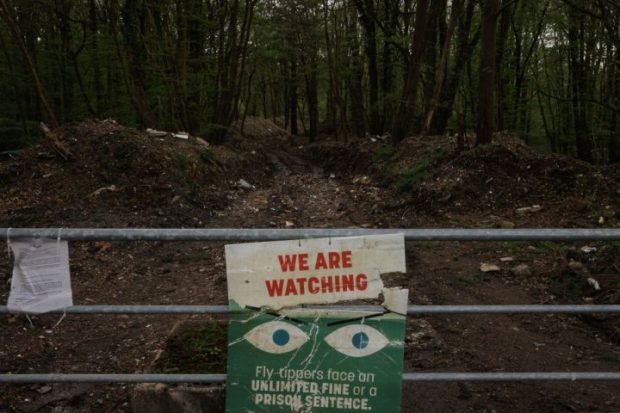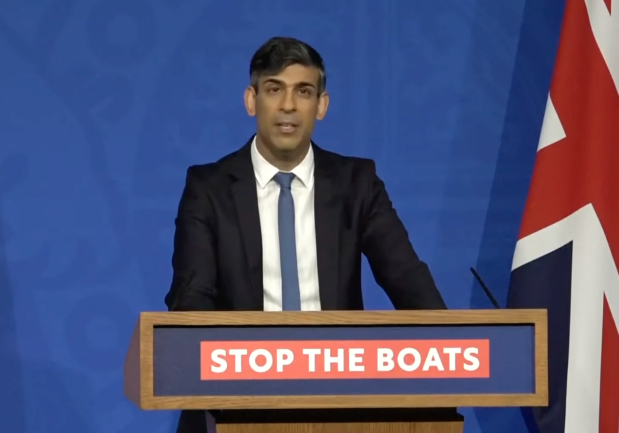Quite the constitutional twist, yesterday. Just as what Walter Bagehot called the efficient side of our ruling set-up was merrily announcing a final bonfire of the Covid regulations, the dignified side (aka her Majesty the Queen) was letting it be known that she has contracted Covid. Not what you’d call perfect timing.
Taking the wide view, she’s just one elderly lady. Policy shouldn’t hinge on the susceptibility of any single elderly lady to a disease, be she never so dignified. Still, if her Maj is carted off to hospital it’ll be bad PR for Number 10s ballsy new Living With Covid policy.
She’s a visible reminder that, yes, it’s still out there, burning through the population like a peat fire. I don’t raise it because I think it’s any sort of indication, in itself, that the removal of Covid restrictions is a mistake. My argument here is not of the bellowing headline, clarion-call type, I’m afraid; but rather of the cautious ‘what if’ variety…
Absolute certainty – certainty of the blowhard sort that folds Covid policy into another arm of the culture wars – is to be mistrusted in this discussion. The libertarian position that thinks all Covid restrictions were a Stasi-like blow against ‘personal freedom’ is one with a pretty shallow idea of freedom. To the old saw that your freedom to swing your arm ends where it meets my nose, it retorts that noses are fake news. Likewise, though not in my view symmetrically, there’s a lockdown-hungry school of thought that refuses to countenance any claim that arms might have on our sympathy.
The humble, and sensible, position to start from in all this is admitting that there’s much we don’t know. For those of us without an academic background in epidemiology, or PhD-level statistics, or the time to read and compare great scads of data from around the world, most of our understanding of what the virus is doing and how it responds to attempts to stop it doing it is going to be second hand. We’ll tend to prefer the interpretations that suit our preconceptions. And even those who have the time to gather the data and the expertise to understand it are in the dark about a lot: most of all, what’s coming down the pipe.
One thing that we do know, and it is a practical point well made by those who oppose further mandatory measures, is that testing, contact tracing and mandatory isolation come at a considerable cost. You can’t just shut the economy forever, even to save lives. There is also the point in principle – which I read as the steady wind behind the PM’s determination to roll back these measures – that personal responsibility is to be preferred to state coercion. You need a compelling reason (a deadly pandemic, in my book, counts as one, but your mileage may vary) to stop people leaving their homes by law.
So with immunity on the rise, vaccination proving effective and the latest variant seeming to be a lot less likely to kill the people who get it, the case for relaxing things is a reasonable one. When the emergency passes, you remove the emergency measures. It doesn’t make you a granny-killing monster to think that we might be, as the PM put it, at ‘a stage where we think you can shift the balance away from state mandation – away from banning certain courses of action, compelling certain courses of action – in favour of encouraging personal responsibility’.
Well, yes. Even if ‘personal responsibility’ coincides happily with “’getting a bit of red ink off our books’. But it seems to me that the *blanket* removal of all these measures – no requirement to isolate, no mask mandates, no free LFTs – is self-contradictory even on its own terms. And the reason I think it’s like that is that it’s driven by politics: they’re after precisely those bellowing headline clarion-call type wins that will appeal to a constituency impatient of the complexities.
If you want people to take personal responsibility for their response to the virus – to take their own decisions – doesn’t it also make sense to give them as much information as possible to inform those decisions? Abolishing free LFTs – though it might look like an easy win with the anti-state brigade – seems to me counterproductive in that respect. You can’t take a sensible personal decision about how to deal with Covid if you don’t know whether you’ve got it.
That will automatically create a two-tier situation: those who can afford to blow a tenner here or there on LFTs will use them with gay abandon and, we hope, some responsibility. And those who can’t afford to pay for LFTs, or won’t, won’t. Crudely, the virus will start to spread much more freely among poor people – who are also the people least likely to be able to afford to isolate on infection in any case.
And it’s worth thinking, too, if you’re going to let the virus rip in the healthy population, about what you do for the immunocompromised. Are they to take personal responsibility for never leaving the house because they might run into someone who has taken the empowering personal decision, after testing positive, to Live With Covid and go to the pub anyway?
Perhaps these are externalities; perhaps they are quibbles and niggles and bedwetting little objections. After all, we don’t forgo motor travel just because it costs innocent lives, and we don’t force seasonal flu sufferers to lock themselves away in case they bump into a vulnerable oldie. We live with risk. But Covid is a special sort of risk. Those unknowns again: it changes. What’s coming down the pipe? Do we want to discover by blind experiment that the next variant is a bit nastier, rather than a bit less nasty, than the last? That doesn’t sound either dignified or efficient to me.
Got something to add? Join the discussion and comment below.
Get 10 issues for just $10
Subscribe to The Spectator Australia today for the next 10 magazine issues, plus full online access, for just $10.



















Comments
Don't miss out
Join the conversation with other Spectator Australia readers. Subscribe to leave a comment.
SUBSCRIBEAlready a subscriber? Log in